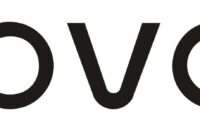BETonMACE Results Show 57% Hazard Reduction in Primary MACE for Patients on Apabetalone and New Oral Anti-Diabetic Treatments
CALGARY, Alberta, Jan. 13, 2020 (GLOBE NEWSWIRE) — Resverlogix Corp. (“Resverlogix” or the “Company”) (TSX: RVX) is pleased to announce today additional highly significant findings and clear synergy when apabetalone is combined with anti-diabetic therapies, including dipeptidyl peptidase 4 inhibitors (DPP4i) and sodium-glucose cotransporter-2 inhibitors (SGLT2i), resulting in the filing of new intellectual property.
“The ongoing analysis of BETonMACE continues to produce extremely promising data and significantly strengthens the short-term commercial value of our lead compound, apabetalone.” said Donald McCaffrey, President and CEO. “This is the most significant data ever released by Resverlogix. The p-value findings show that in this important target patient group there is a 2 in 10,000 chance that the enhanced reduction of Primary MACE and Hospitalization for Heart Failure of being a false positive signal. When apabetalone was applied to top standard of care in diabetes patients their risk of MACE events was greatly reduced. In total, approximately 25% of BETonMACE patients were on new oral anti-diabetic treatments that included SGLT2 and DPP4 inhibitors. In combination with apabetalone, primary MACE was reduced by 57% and by 63% when hospitalization for congestive heart failure was included. We believe the efficacy and safety demonstrated with this combination approach will greatly assist in our strategic partnership discussions and significantly improves our intellectual property and commercial runway position. In short, we can demonstrate efficacy, safety and we believe we now have a clear path to commercialization.”
BETonMACE Endpoints with Oral Anti-Diabetic Treatments Including SGLT2 or DPP4 Inhibitors
(RVX Internal Analysis – Non-QC’d)
- Primary MACE (CV death, non-fatal MI and stroke): 57% Hazard reduction (HR, 0.43; 95% CI, 0.25-0.75; p-value = 0.003)
- Primary MACE including Hospitalization for Congestive Heart Failure (CHF): 63% Hazard reduction (HR, 0.37; 95% CI, 0.22-0.62; p-value = 0.0002)
- Hospitalization for CHF: 74% Hazard reduction (HR, 0.26; 95% CI, 0.08-0.80; p-value = 0.02)
Current Anti-Diabetic Treatments
SGLT2i and DPP4i represent the latest generation of oral anti-diabetic therapies and look to benefit patients with type 2 diabetes mellitus by reducing blood glucose levels. First approved by the US FDA in 2013 and 2006, respectively, these breakthrough therapies have demonstrated significant improvements in both renal and cardiovascular outcomes among diabetics.
Jardiance (co-owned by Boehringer Ingelheim and Eli Lilly) and Januvia (Merck & Co.) are the current SGLT2i and DPP4i market leaders, respectively. The market penetration of these treatments is expected to grow significantly over the next five years, with the potential global market value of approximately US$25 billion by 2024 (Mordor Intelligence 2019). However, no diabetes medication alone (including SGLT2i and DPP4i) has been shown to reduce MACE in patients with recent ACS and substantial residual risk remains for this population.
BETonMACE
In the fall of 2019, Resverlogix reported results from the groundbreaking Phase 3 trial BETonMACE. Apabetalone treatment significantly reduced hospitalizations due to congestive heart failure in comparison to placebo with top standard of care, as well as improving cardiovascular outcomes in two pre-specified subpopulations. Significant improvements in cognition, as measured by Montreal Cognitive Assessment (MoCA) and relative to placebo with top standard of care, were also observed in cardiovascular disease patients with moderate to severe cognitive decline. Apabetalone’s consistent safety profile was further validated by an analysis of adverse events in BETonMACE, and nine positive reports by the trial’s independent Data and Safety Monitoring Board.
About Resverlogix
Resverlogix is developing apabetalone (RVX-208), a first-in-class, small molecule that is a selective BET (bromodomain and extra-terminal) inhibitor. BET inhibition is an epigenetic mechanism that can regulate disease-causing genes. Apabetalone is a BET inhibitor selective for the second bromodomain (BD2) within the BET proteins. This selective inhibition of apabetalone on BD2 produces a specific set of biological effects with potentially important benefits for patients with high-risk cardiovascular disease, diabetes mellitus, chronic kidney disease, end-stage renal disease treated with hemodialysis, neurodegenerative disease, Fabry disease, peripheral artery disease and other orphan diseases, while maintaining a well described safety profile.
Resverlogix common shares trade on the Toronto Stock Exchange (TSX:RVX).
Follow us on:
- Twitter: @Resverlogix_RVX
- LinkedIn: https://www.linkedin.com/company/resverlogix-corp-/
For further information please contact:
Investor Relations
Email: ir@resverlogix.com
Phone: 403-254-9252
Or visit our website: www.resverlogix.com
This news release may contain certain forward-looking information as defined under applicable Canadian securities legislation, that are not based on historical fact, including without limitation statements containing the words “believes”, “anticipates”, “plans”, “intends”, “will”, “should”, “expects”, “continue”, “estimate”, “forecasts” and other similar expressions. In particular, this news release includes forward looking information related to the confirmation by the Company of a significant corporate advancement establishing apabetalone as a blockbuster combination drug in high-risk diabetes patients with CVD, the clear therapeutic synergy and benefit to patients when apabetalone is combined with anti-diabetic therapies, including DPP4i and SGLT2i, the assistance of the foregoing to the Company’s strategic partnership discussions and a significantly improved intellectual property position, a clear path to commercialization of apabetalone and the potential role of apabetalone in the treatment of patients with cognitive disorders, high-risk cardiovascular disease, diabetes mellitus, chronic kidney disease, end-stage renal disease treated with hemodialysis, Fabry disease, peripheral artery disease and other orphan diseases. Our actual results, events or developments could be materially different from those expressed or implied by these forward-looking statements. We can give no assurance that any of the events or expectations will occur or be realized. By their nature, forward-looking statements are subject to numerous assumptions and risk factors including those discussed in our Annual Information Form and most recent MD&A which are incorporated herein by reference and are available through SEDAR at www.sedar.com. The forward-looking statements contained in this news release are expressly qualified by this cautionary statement and are made as of the date hereof. The Company disclaims any intention and has no obligation or responsibility, except as required by law, to update or revise any forward-looking statements, whether as a result of new information, future events or otherwise.






